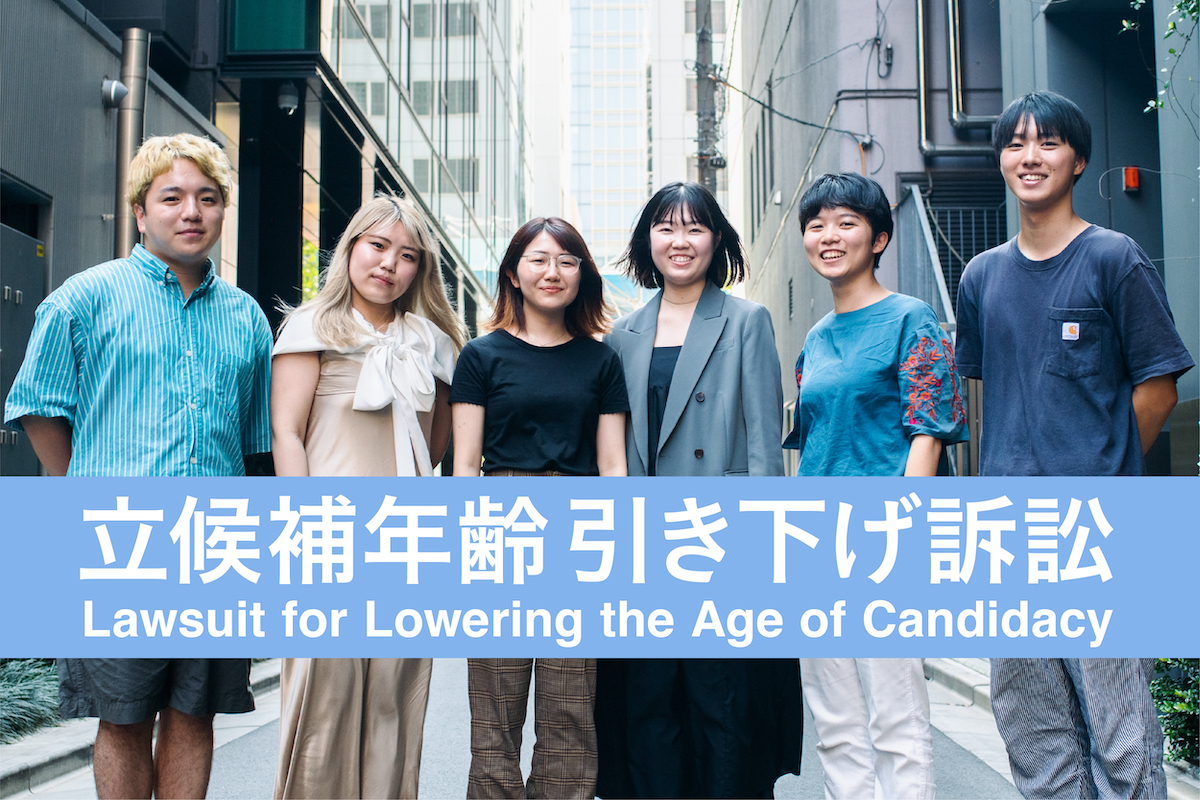To Create a Society Where We Ourselves Can Discuss Our Issues
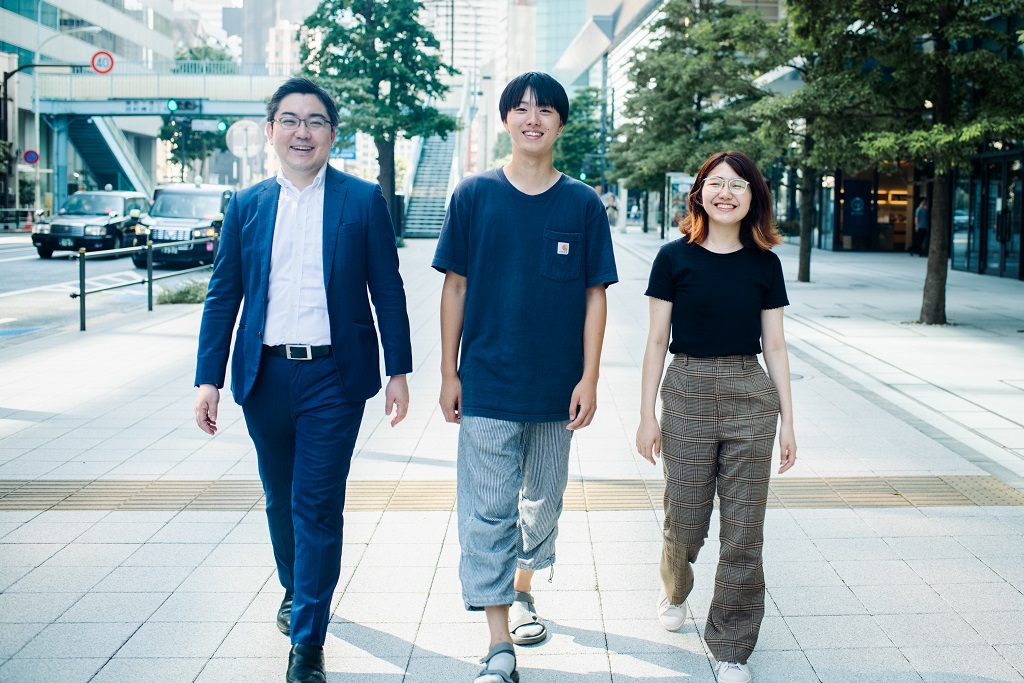 2023.9.5
2023.9.5
The Story of Young People and Lawyers Seeking to Lower the Age of Candidacy
On July 10, the highest temperature in Tokyo was 36.5 degrees Celsius.
Six people aged 19 to 25 filed the Lawsuit for Lowering the Age of Candidacy. As I walked to meet the plaintiffs, I could see steam rising from the asphalt.
Public Offices Election Act, Article 10:
The age to run for the House of Representatives and local assemblies is 25 or older.
The age to run for the House of Councillors and prefectural governors is 30 or older.
Why are the boundaries for candidacy set at 25 and 30 years old? In fact, no one has a rational answer to this question.
In the unified local elections of April 2023, six people who were not accepted as candidates due to their age claimed that “Article 10 of the Public Offices Election Act infringes upon the right to run for office — a right integral to popular sovereignty — and is unconstitutional.” They have sued the government, seeking to lower the age of candidacy.
Among the six, Momoko Nojo (25), who aimed to run for Kanagawa prefectural governor, and Haruka Kubo (19), who aimed to run for city councilor of Tsuru City, will still be unable to run for these positions four years later. Through this lawsuit, they seek confirmation of their eligibility to run for office and are also demanding compensation from the state for legislative inaction that prevented their candidacies.
Popular Sovereignty and Political Participation
“We thought it was important to create a system where young people can feel that it’s okay to voice their unresolved issues to society and that there are ways to do so,” says Haruka Kubo, a 19-year-old university sophomore who turned his attention to political participation in high school.
Growing up in rural Fukui Prefecture and taking an interest in environmental issues and the concentration of nuclear power plants in Fukui, Kubo participated in climate change demonstrations. He noticed that although people attended demonstrations, there were few public comments directly reaching politicians. This led him to want to diversify methods of political participation.
“In Taiwan, for instance, you can write online about how you want certain policies to change. If enough people support it, the legislature must discuss it. The process of reflecting public voices in politics is clear. In Japan, it’s hard to see how public comments influence politics. I wanted to create a system that motivates political participation like in Taiwan.”
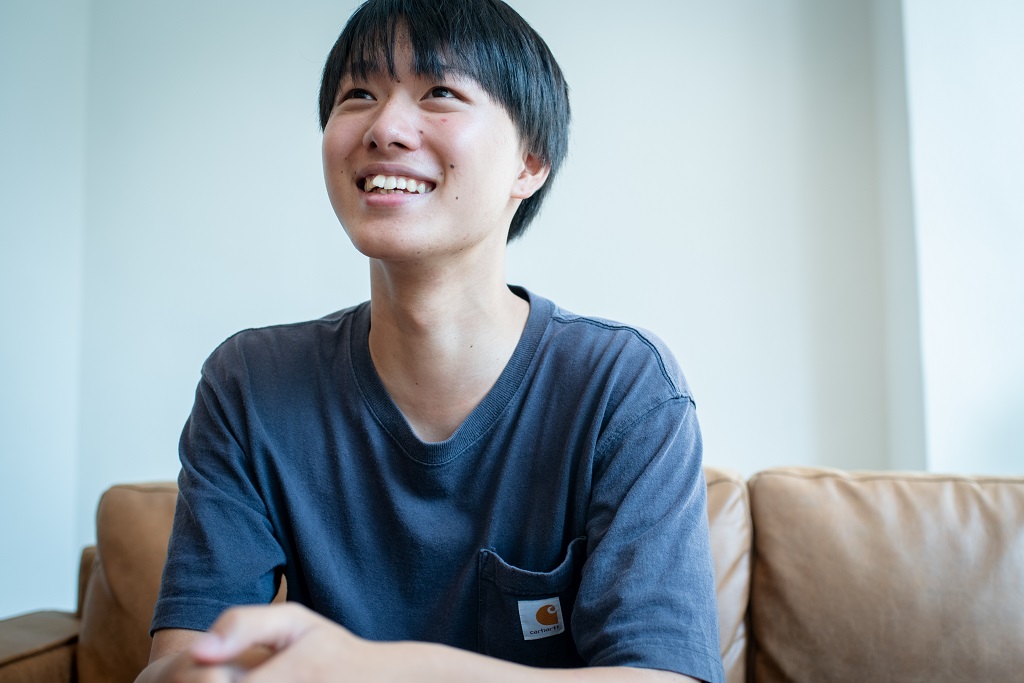
Kubo explains that his awareness grew because he was in an environment where his opinions were respected. “At the school I attended until I was 18, there was a rule that even the smallest things were to be decided through discussions among everyone.”
In a small school of 100 students, they held meetings to discuss everything from student troubles to making school rules.
“For example, when classmates had a minor quarrel, even if you thought it didn’t involve you, it actually did. Ignoring the quarrel or failing to notice bad relationships meant that it wasn’t just those kids’ problem; we all had something to do. We discussed what we could do and what needed to change for everyone to get along.”
As Kubo communicated his opinions and listened to others, he realized that if his voice wasn’t heard, he would feel that his voice had no meaning, which would diminish his sense of self-efficacy. Being in an environment where his opinions were respected led him to think, “My opinion has value,” and to question, “What’s wrong with a society that doesn’t listen to diverse voices? How can we make our voices heard?”
Wanting to engage in community activities, Kubo aimed to run for Tsuru City Council in the April local elections, believing that even one young candidate could broaden political participation among peers and diversify methods of participation. However, his candidacy was rejected due to his age.
Preamble to the Constitution – Popular Sovereignty
National governance is based on the solemn trust of the people, derives its authority from the people, is exercised by representatives of the people, and its benefits are enjoyed by the people.
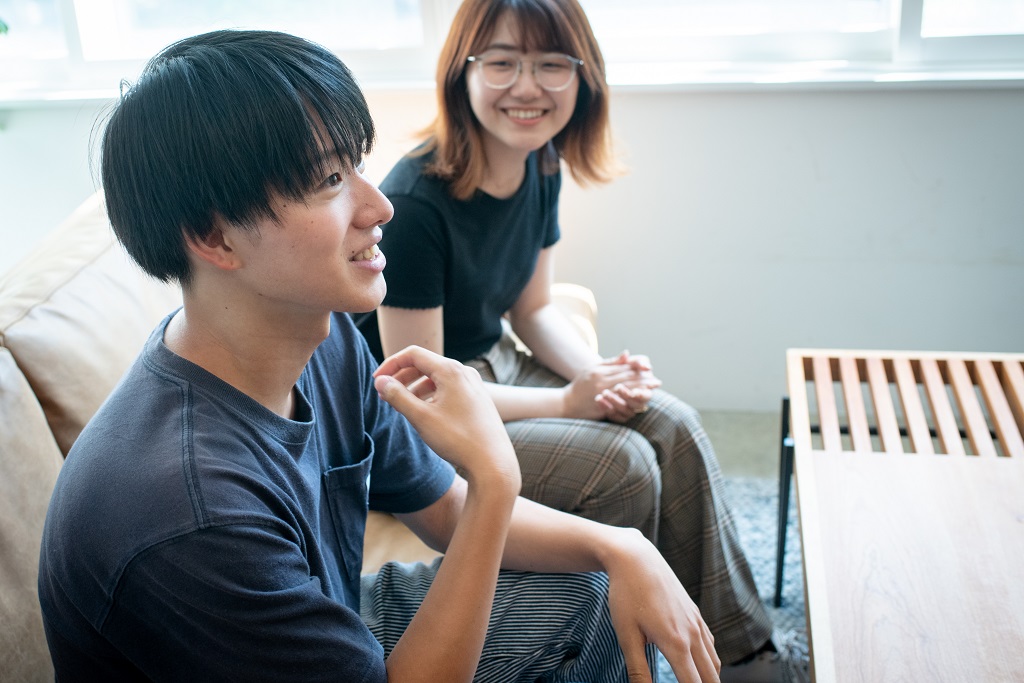
Right to Stand for Election as the Core of Popular Sovereignty and Democracy
“The essence of popular sovereignty is that we decide our politics,” explains lead attorney Yoshitaka Toda.
“In ancient Greece, citizens gathered in assemblies to debate and directly participate in governance. They all had the right to vote (suffrage) and to run for office (the right to stand for election)” This principle — “those who govern and those who are governed should be the same” — supports democracy.
“Over time, representative systems emerged, increasing the distance between public opinion and decision-making. But the fundamental principle that public opinion should be directly reflected remains. The right to stand for election, as an individual’s right of the sovereign people, is at the core of popular sovereignty.”
“Therefore, the ages for voting and candidacy should be aligned to ensure that ‘those who govern’ and ‘those who are governed’ are the same,” Toda argues.
“Past Supreme Court rulings have also judged that the freedom to run for office is a significant right guaranteed by the Constitution and that restrictions on this freedom must be particularly cautious.”
Restrictions on the freedom to run for office limit voters’ freedom to choose candidates and ultimately restrict voting rights.
Constitution, Article 15
1. The people have the inherent right to select and dismiss public officials.
3. Universal adult suffrage is guaranteed regarding public officials’ elections.
However, in Japan, the age at which one can exercise the right to stand for election (25/30 years old) is significantly different from the adult and voting age of 18. This discrepancy creates a group that can vote but cannot participate in political decision-making, and there are now 15 million voters under 30.
People in their 20s make up 10% of the total population, and teenagers account for 16%, but there are few local councilors under 30, and no national parliament members under 30. Even in their 30s, only 3% of parliament members are in this age group. Conversely, those aged 50 and over make up 80% of local councilors and 75% of prefectural councilors.
Outdated Regulations
Despite knowing this discrepancy, why does the Public Offices Election Act maintain candidacy ages at 25/30 years?
The Public Offices Election Act, Article 10, was established in 1950, inheriting the age of 30 from the 1925 General Election Law (which itself has roots in the Meiji era), based on the idea that the government selects the citizens granted voting and candidacy rights.
In recent times, the government explained these age settings as necessary due to “the need for considerable knowledge and experience” (1998) and “based on prudence and discernment from social experience” (2019).
Attorney Toda points out, “Human rights at the core of popular sovereignty are being deprived based on ambiguous words like ‘prudence’ and criteria set 100 years ago.”
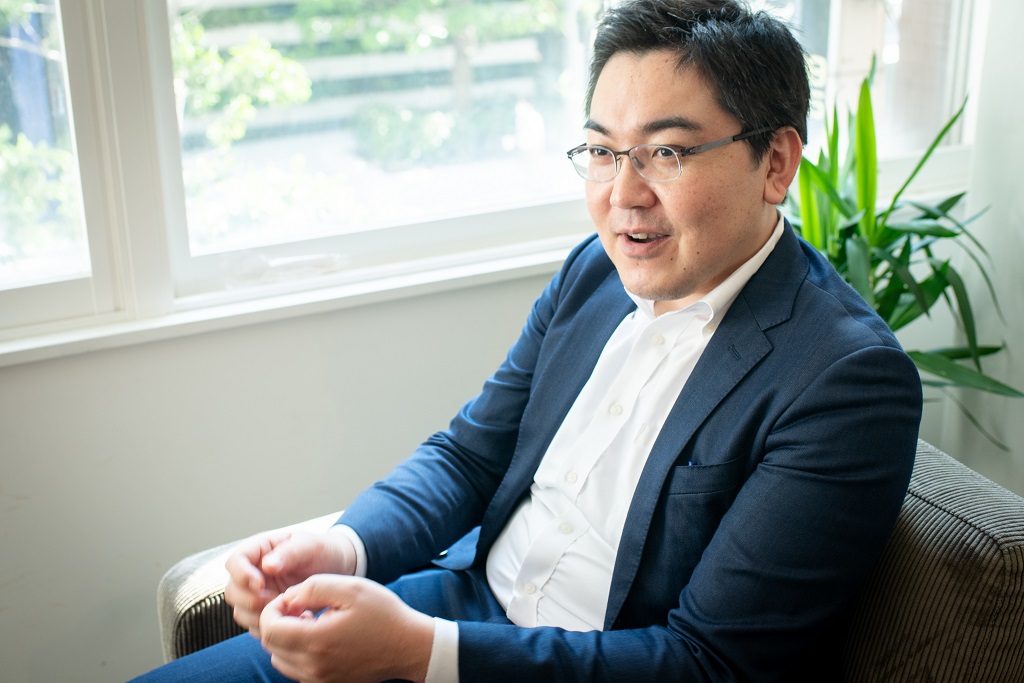
The Problem of Generalizing “Young People”
“When meeting politicians, they often say they want to hear young people’s opinions. However, there are disparities within generations, and we can’t be lumped together as ‘young people,’” says Momoko Nojo, who founded the general incorporated association NO YOUTH NO JAPAN to make young people’s political participation more accessible after studying finance and political participation in Denmark and returning to Japan.
“But explaining that there are disparities within generations didn’t always convey the situation. For example, when asked about opinions on declining birth rates, mentioning vague future anxieties often led to a narrative about how much harder it was in their time.”
“It felt strange to be called to speak as a representative of my generation and then have it concluded with ‘we listened to young people’s opinions.’”
“No matter how hard you try to deliver opinions, it’s tough when there’s no diversity among those listening,” Nojo realized.
Nojo’s words made me realize that this issue of being generalized isn’t unique to young people. Women, LGBTQ individuals, foreigners, people with disabilities, the poor, criminal defendants — anyone can become a minority or socially disadvantaged and be lumped together and labeled, ignoring internal diversity.
Constitution, Article 44
The qualifications of both Houses’ members and their electors shall be determined by law. However, discrimination based on race, creed, sex, social status, family origin, education, property, or income shall not be permitted.
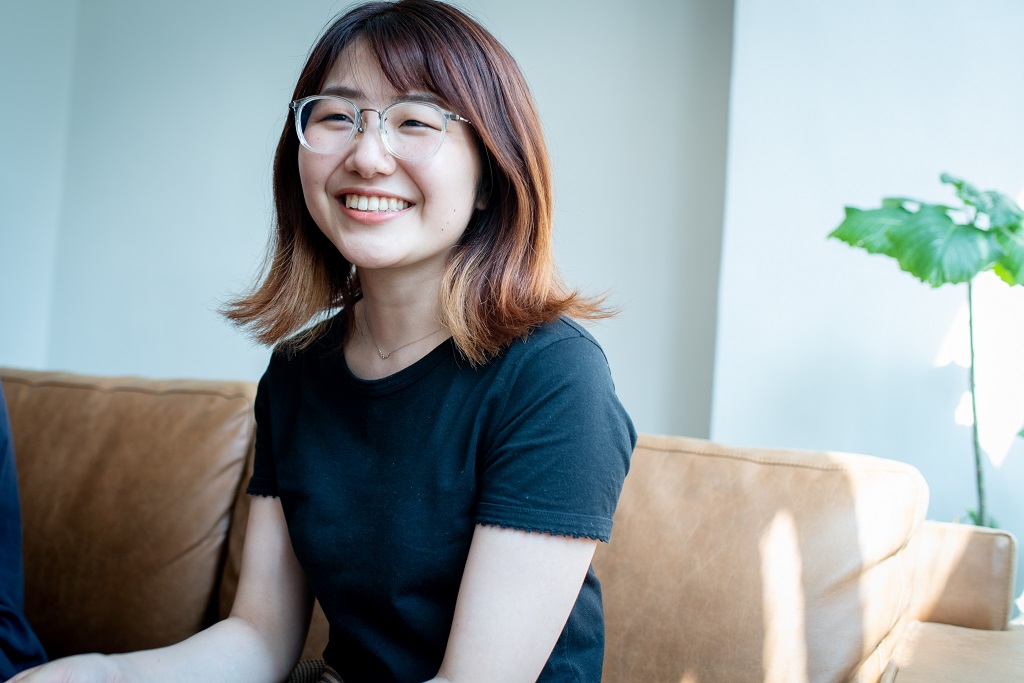
“Young People” Discrimination
While Article 44 prohibits discrimination in eligibility to stand for election based on education, discrimination based on “experience” and “prudence” — assuming young people lack these qualities — persists. This is “discrimination against young people,” explains Toda.
“Discrimination against young people hasn’t been focused on because everyone was once a child, seen as a passing phase, making it hard to recognize as discrimination.”
“But the structure is similar to gender or racial discrimination.”
Toda draws parallels with the lack of women’s suffrage in pre-war Japan and civil rights for African Americans in the US, suggesting that societal norms fixated on existing structures, but upon reflection, they are evidently unreasonable.
Labeling young people as “incomplete” can make both discriminators and the discriminated against accept it as natural, despite its irrationality.
“During the Nazi era in Germany, the Nuremberg Laws stripped Jews of their civic rights, including the right to participate in politics. The example of easily granting the legislative body the discretion to deny electoral rights led to a significant regression in democracy,” says Toda. “The consequences of stripping away the right to run for office are not limited to the regression of democracy. At that time, Nazi Germany used the exclusion of Jews from the political arena to create social stigma, silence them, and perpetuate discrimination.”
Structure Where Decision-Makers Are Absent
“I have seen young people struggling with mental health issues during the COVID-19 pandemic. Those living alone in small rooms were suffering, yet they were ignored, and the reopening of universities was delayed the most. In the end, the lawmakers primarily considered those with families. I thought things might have been different if there had been representatives of young people in the discussion,” says Nojo.
“This isn’t just about mental health. Fundamentally, I believe it’s about the structure of decision-making for various issues.”
Reflecting on the recent discussions about the approval of emergency contraceptive pills (morning-after pills), Nojo recalls how committees and medical associations, composed mostly of middle-aged men, opposed approval with reasons like ‘young women might misuse them,’ ‘gynecology clinics relying on abortion procedures would lose their business foundation,’ and ‘it would lead to moral decline,’ even making recommendations to the Minister.
“I found it extremely grotesque that the voices of those who truly need it are not heard, while recommendations from powerful organizations reach the Minister.”
“The autonomy of the people who should be the focus is ignored, and discussions are advancing based on business interests, power, and the convenience of prominent figures in the industry.”
Nojo believes this issue extends beyond discussions about emergency contraceptives or gender equality. It applies to various social issues, such as optional family names, same-sex marriage, climate change, education and economic disparities, social security, employment, and tuition fees. “I feel that regardless of the individual campaign or issue, the underlying reason why nothing changes is that we are fighting against the same forces. It’s a matter of structure.”
Nojo and Kubo are not alone. The other four plaintiffs in this lawsuit also face social issues as stakeholders for which they want to propose updates to the system, and they are fighting against the lack of self-determination in the political arena.
Kaito Yoshizumi addresses career disparities, Chico speaks to gender disparities, Suzuka Nakamura focuses on disparities between rural and urban youth and generational differences in climate change awareness, and another Suzuka Nakamura advocates for nuclear disarmament and the suppression of youth political activities, all as issues they personally relate to.

Raising Voices Empowers the Same Generation
Nojo continues:
“Choosing to take legal action this time is partly because I have exhausted various other means.”
“When wanting to change the law, it is important to petition lawmakers, but I felt that fighting head-on and making it clear that ‘we deserve our rights’ would empower the same generation more. Rights must be visible; otherwise, people won’t realize they have them.”
“I wanted to use this opportunity to make those who are deprived of their rights recognize that this is wrong and to acknowledge the issue as a problem.”
“What we seek is a society free of age discrimination. Once the age requirement is lowered and young people enter politics, I believe it will change the political agenda-setting as well.”
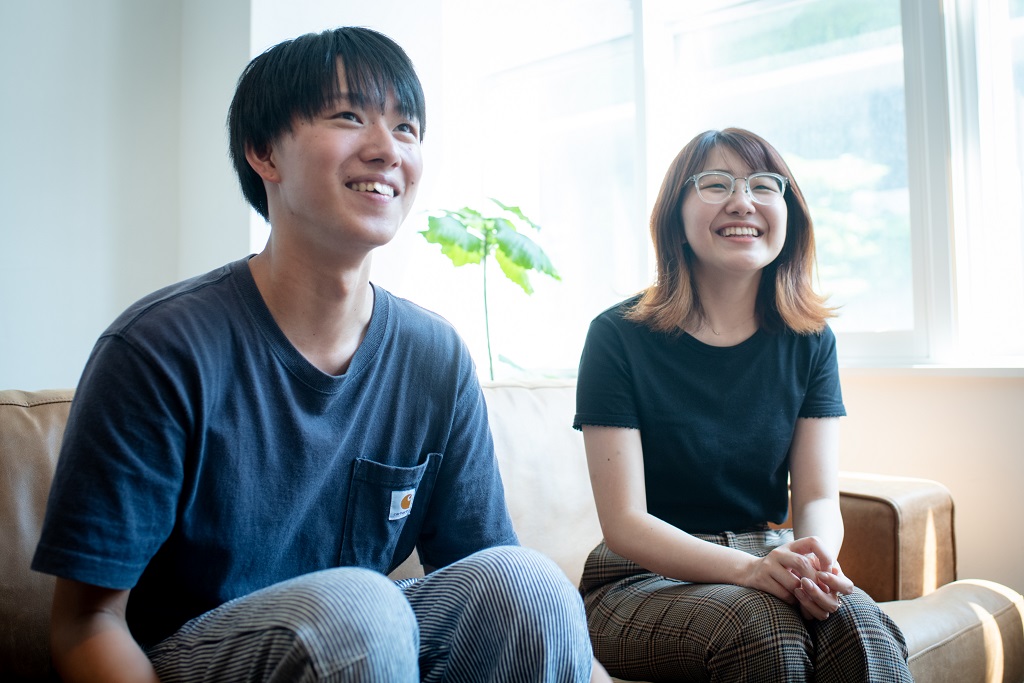
Global Trends
I was reminded of Rwanda, an African country I visited recently. During the COVID-19 pandemic, when the IT-advanced Rwanda shifted to “online court proceedings,” there were voices saying, “Elderly people can’t handle court proceedings on computers or smartphones.” However, the government allocated a budget to address this. They placed computers in local kiosks (similar to convenience stores in Japan) and trained local youth to teach the elderly how to use online court services (privacy and security issues are also being discussed).
Although the population structure, social structure, and government internet policies differ, the fundamental difference lies in “who sets the agenda.” The minimum age for candidacy in the Rwandan parliament is reportedly 21.
Globally, among OECD member countries, the majority have set the minimum age for candidacy at 18. As of 2020, this was the case in 21 out of 36 countries. The remaining 9 countries also set the minimum age at 21 or older, and in over half of the countries, the minimum age for candidacy and voting rights coincide. Germany lowered the age for candidacy to 18 in 1974, the UK in 2006, France in 2011, and South Korea in 2021. The global trend of lowering the age reflects that promoting youth political participation itself has become a political agenda.
Source: “The Reference” (National Diet Library, June 2020)
It’s Also an Issue for Those Over 30
That day, after finishing the discussion, Kubo murmured:
“I think the atmosphere where young people are forced to use honorifics towards older people also contributes to age discrimination against the youth.”
Nojo responded, “Conversely, it might also be a problem when older people don’t use honorifics simply based on young appearance, even when there’s no existing relationship.”
“I hadn’t thought about it much before, but…” The defense team, composed of individuals in their 30s and 40s, pondered over this. “Indeed, forcing the use of honorifics might be reinforcing hierarchical relationships,” one person mused. “Are we unconsciously using casual language ourselves?” “Have we been adopting a condescending attitude?”
“In fact, even people from our generation can feel uncomfortable when spoken to in casual language right from the start. It makes us wonder if we are being looked down upon,” another said. “What is the boundary here…”
Listening to the discussion, I remembered when I was 19 and used to respond with “Thank you” in honorifics when someone said, “You’re young but think deeply.” I wondered why I was so unaware of the stereotype that “young people have lower abilities” at that time.
Or rather, “Am I not subconsciously thinking something like ‘it’s impressive for someone so young’ about the plaintiffs now?”
I realized at that moment that the stance we, those over 30, should take in this lawsuit is not merely to say “good luck” to the plaintiffs.
Our stance should be to acknowledge that this issue is our own.
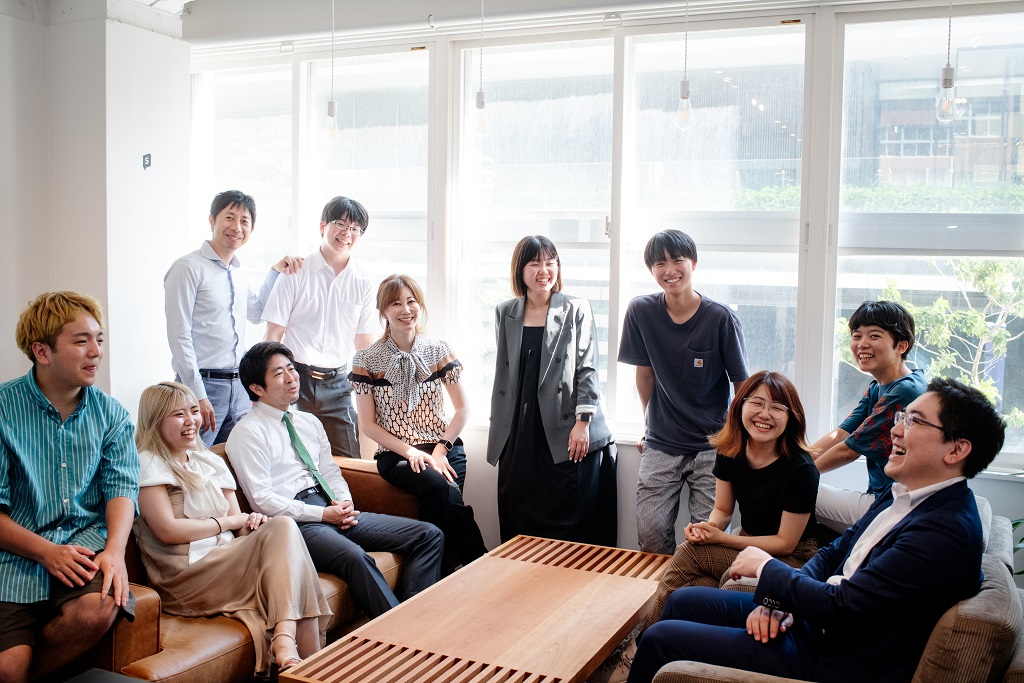
Interview and Text: Yuko Haraguchi
Photography: Maki Amemori
Editing: Orie Maruyama
Translated: Reiko Inoue and Ilia Lassin
